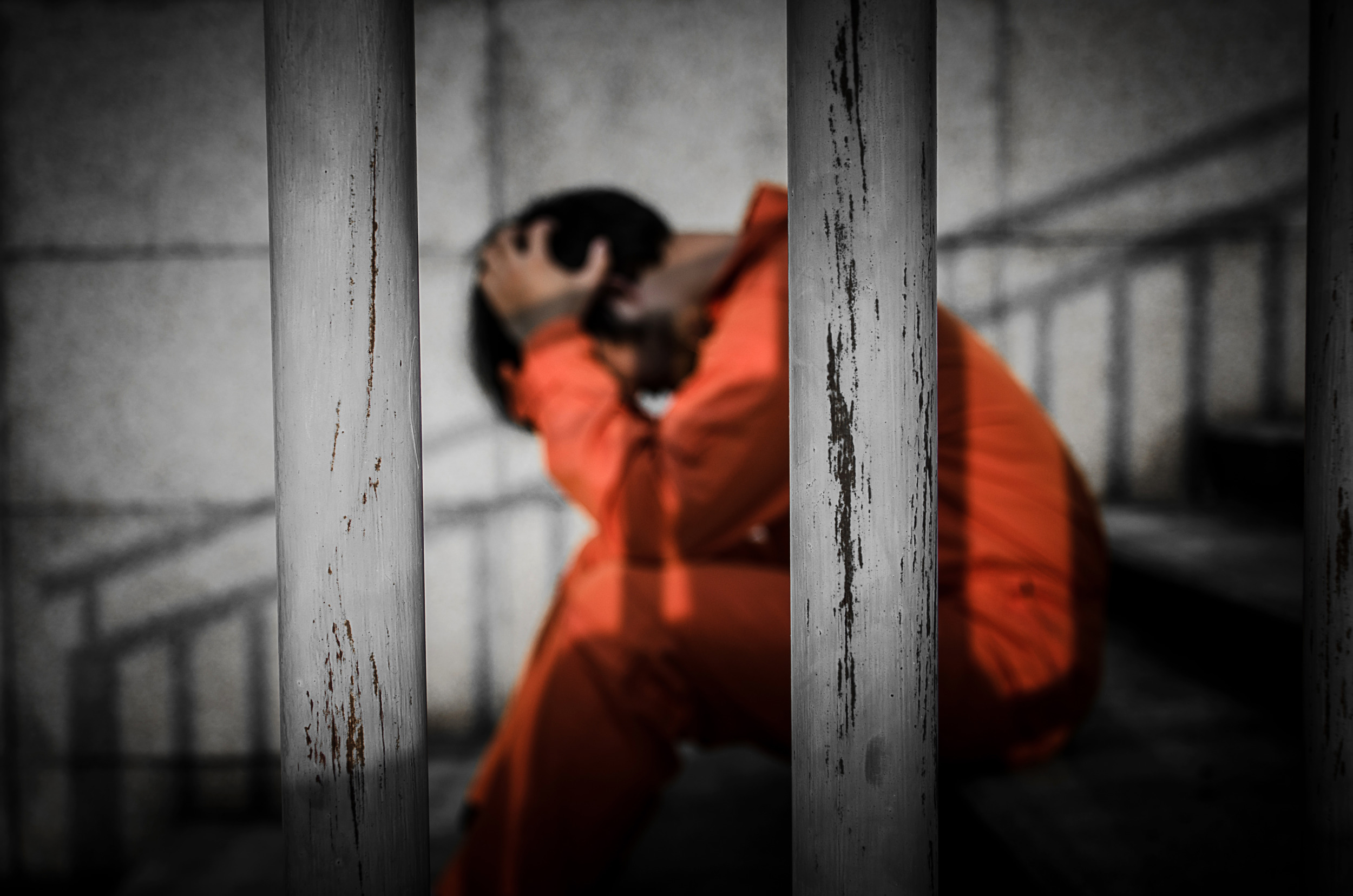Rather than just build more jails, Louisiana juvenile justice system administrators urge officials to take a closer look at policies to address youth criminal trends, in addition to curbing persistent violence and escapes at state correctional centers.
The state operates seven juvenile prisons around Louisiana, not including the recently remodeled facility at the state penitentiary in Angola. A federal judge ordered the Office of Juvenile Justice (OJJ) to remove the offenders it was holding there because the converted death row building didn’t provide suitable housing or services.
Eleven of Louisiana’s 64 parishes have jails for juvenile detainees, and there are two regional youth detention centers that hold offenders until they are assigned to a state facility.
Two more regional centers are in the works for Acadiana and the River Parishes. But in the meantime, state officials operate youth centers that have reached capacity, and many local jails aren’t designed to house juveniles separately from adults.
Labor shortages continue
Also, labor shortages that worsened during the COVID-19 pandemic continue to affect the workforce for juvenile correctional facilities. An entry-level worker at a state youth center can expect to make $35,000 a year, a salary that includes adjustments made since the pandemic.
The agency says the struggles at juvenile facilities make it hard to help the youths in its care.
“I think there are kids, young people who by the time we’re sending them back to their communities, we probably have done more harm than we have done good,” OJJ Deputy Secretary Curtis Nelson said.
His comments came at Tuesday’s meeting of the Juvenile Justice Facility Standards Task Force, a legislature-created panel that’s received input that could eventually shape new state laws or changes to existing ones.
Louisiana currently has 693 juveniles in state custody, Nelson said. They are nearly evenly split between high security facilities (349) and non-secure sites (344) such as group homes and individual residences. Because of a lack of space at secure state centers, the Office of Juvenile Justice has to hold youth either at regional or parish detention centers, which don’t have staff or programs to house them longer than two weeks, or direct them to a non-secure option.
Technically, the state could be held in contempt of court if a youth offender isn’t moved from a local or regional detention center to an OJJ facility within 14 days of their conviction. But because juvenile court judges are aware there’s no room at state youth centers, such complaints are seldom fielded, said Joseph Dominick, executive director of the Florida Parishes Juvenile Detention Center.
One convicted youth spent about 200 days at the Tangipahoa center awaiting OJJ placement, according to Dominick.
The state is also incentivized to direct youth to non-secure facilities, he said, because it results in a lower reimbursement rate for local and regional detention centers. The cost to hold youth at Florida Parishes ranges between $320 to $380 a day, Dominick said. The state pays the facility $140 a day if the young person will end up in a long-term OJJ facility but just $25 daily if they’re bound for a non-secure location.
“The juvenile justice system was not designed to be a mini version of the adult correction center.”
Curtis Nelson, deputy secretary, Office of Juvenile Justice
Dominick acknowledged Nelson and OJJ officials have limited options with so few open spots at state youth centers.
He also took aim at a recent change to state law that moved licensing authority for juvenile detention sites from the state Department of Child and Family Services to the Office of Juvenile Justice.
“If you’re going to have them as the licensing arm over detention centers, we may be … sitting, waiting for kids to move — because now the body that’s licensing us is the body that’s in charge of moving those kids,” Dominick said. “They can take their time, and they can weaponize that licensure against detention facilities.”
One employee tasked to audit all juvenile facilities
Dominick also suggested the newly created state child ombudsman’s position be tasked with auditing juvenile correctional centers. Retired Judge Kathleen Richey, who was named to the post in late September, attended the task force meeting and confirmed her new office actually has that authority, although she is currently its only employee.
Nelson, who also sits on the task force, passed along suggestions to fellow members in what could well have been his final meeting as OJJ deputy secretary. Republican Gov.-elect Jeff Landry has yet to name a leader for the state Department of Corrections and Public Safety, the umbrella agency for the Office of Juvenile Justice.
Dominick, who appeared before the task force as president of the Louisiana Juvenile Detention Association, proposed that Louisiana follow Alabama’s lead and separate its juvenile justice system from adult corrections. His comments fell in line with earlier statements from Nelson, who has advocated for a more therapeutic approach to youth offenders.
“The juvenile justice system was not designed to be a mini version of the adult correction center,” Nelson said. “It was designed to give rehabilitative services to adjudicated youth. And when you have to remove them from their communities, that removal should be done as a last resort measure. It should be done for public safety.”
[Related: Q&A: From Louisiana prisoner to Louisiana State University graduate]
The incoming governor campaigned on a tough-on-crime platform, although he has provided few specifics on what measures he might propose. It’s expected Landry will convene a special session of the Louisiana Legislature from Feb. 19 through March 6 to address public safety.
Conservative lawmakers are expected to revive attempts to undo the state’s “Raise the Age” law that gave judges discretion to treat 17-year-olds as either juveniles or adults. Critics of the legislation, which current Democratic Gov. John Bel Edwards supported, say it’s in large part responsible for the increase in juvenile facility crowding and the ensuing violence and escapes.
Juvenile detainees escape
In July 2022, six youths escaped the Bridge City Center for Youth in Jefferson Parish, stole a truck and wrecked it. One of the teens was accused of a near-fatal shooting in New Orleans.
Eight youth were the first to be relocated to the makeshift Angola site in October 2022 after breakouts and fights at other state facilities. Some 70 to 80 young offenders, considered the most problematic in the juvenile justice system, cycled through Angola until U.S. District Judge Shelly Dick ordered it closed in September.
[Related: Judge rules Louisiana must remove youth from Angola]
Elsewhere, a guard at the Swanson Center for Youth on Monroe had to be hospitalized last month after five incarcerated youth attacked facility employees.
A 16-year-old who escaped state custody in March remains at large. The public was made aware of Jai Jefferson’s escape from a Gretna halfway house when the New Orleans Police Department reported he allegedly held up a woman at gunpoint in early December.
Nelson said Monday he supports a policy change to notify the public when juveniles escape from a state facility. The OJJ has cited state law as reason for not going public previously when incarcerated youth have fled confinement.
Earlier this year, Landry supported a proposal to remove the shield of confidentiality from juvenile court records in the state’s largest urban areas: Baton Rouge, New Orleans and Shreveport. The bill failed to gain approval from the state Senate.
The facility standards task force is expected to meet once more in January ahead of compiling a report for lawmakers to consider. The deadline for the group to submit its report to the Senate is March 1, which falls in the middle of the special session on crime but before the regular session that begins March 11.
***
Greg LaRose reports for The Louisiana Illuminator. Previously, he was the chief investigative reporter for WDSU-TV in New Orleans, led the government, politics team for The Times-Picayune|NOLA.com, and was editor in chief at New Orleans CityBusiness.
This story was originally published by The Louisiana Illuminator.
The Lousiana Illuminator is part of States Newsroom, a network of news bureaus supported by grants and a coalition of donors as a 501c(3) public charity. Louisiana Illuminator maintains editorial independence.
































